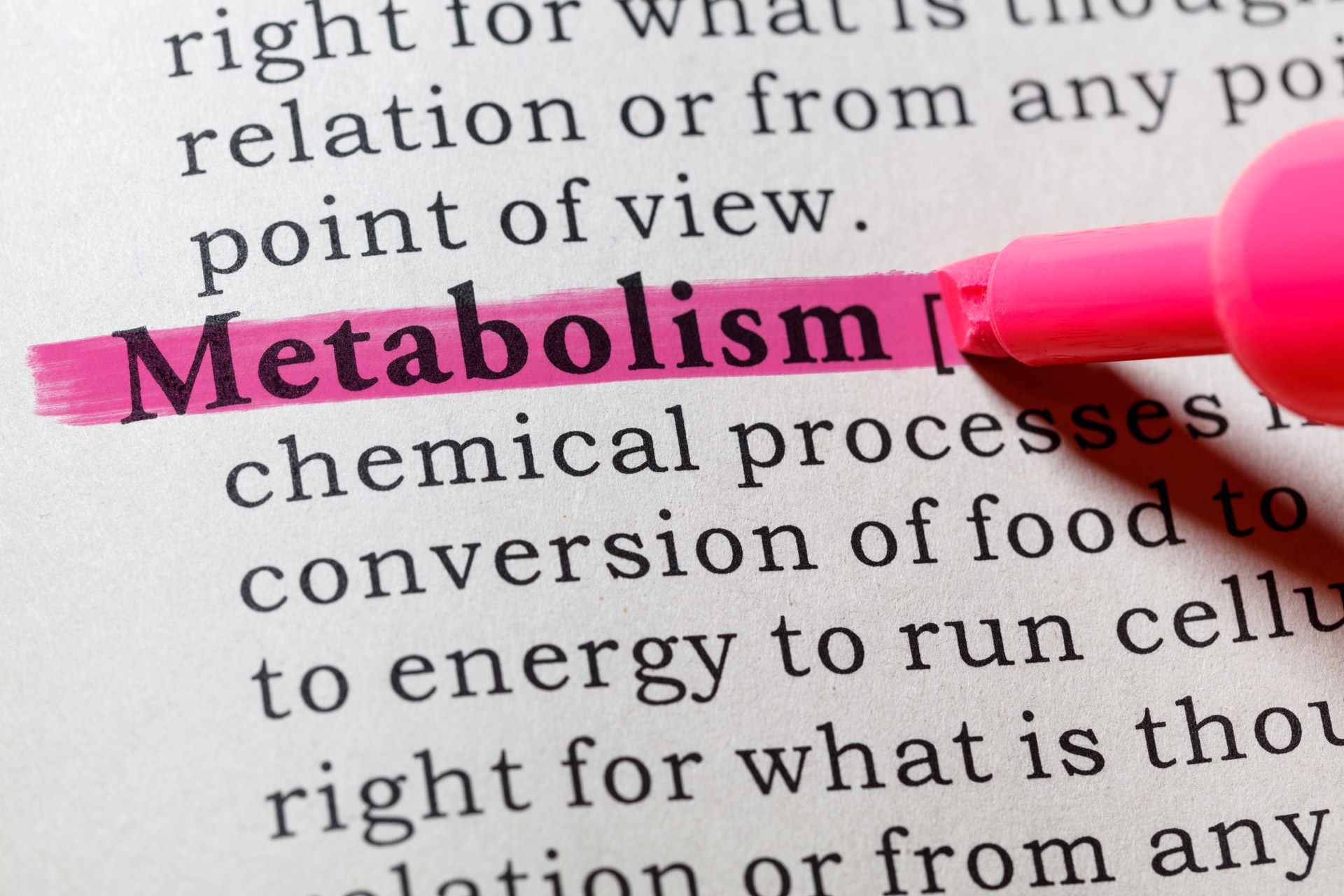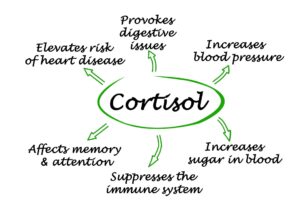
When a person uses the phrase, ‘broken metabolism’ they are usually referencing their ability or lack thereof, to burn calories. This typically originates from those who echo, “I look at food and gain inches!” There is an assumption that the metabolism is not working on all cylinders especially when they watch others “gorge” on food and stay lean. But is it truly metabolism?
No doubt, a slower metabolism can lead to less than optimal health and possible weight gain. Metabolism’s main attribute is the conversion of food to energy to help run cellular processes. The importance of metabolism seems to be almost a secret considering the impact it can have on health.
An optimal metabolism is a great goal to have. It allows for quicker regeneration of the cells to repair and regenerate. A good analogy of metabolism is the draining of water from a tub with the tap on. If the metabolism is slow the drain is partially blocked and water is slow to leave. If the metabolism is good, the water flows out quickly and new water (cells) gets replaced.
A good metabolism is the key to health and longevity.
The most common way people check their metabolism is through thyroid blood work. This can be part of the equation but it is not complete. You need to correlate with possible symptoms of a slow metabolism (hypothyroidism) or possibly hyperthyroidism. You want to look at your calories burned, temperature and pulse throughout the day, your water excretion (you should urinate less than half you intake). Also, the achilles reflex thyroid test can give some insight. Your sleep, mood, energy, libido, and ability to handle stress all are related to your metabolism.
If you feel or know your metabolism is broken then here are some steps you can take.
- Cut out or minimize polyunsaturated fats. These are the unsaturated fats that have a blocking effect on the cell. They cause many inflammatory responses. They act like a blanket being thrown over the cell so it won’t receive the thyroid hormone and the glucose it needs. They are present in most foods but higher quantities are in cheap oils like canola, soybean, and other seed oils. They are also present in nuts, seeds and most nut butters. Choose fats that like coconut oil, butter or olive oil that are more resistant to heat and oxygen.
- Don’t go low carbohydrate. Sugar is needed for every cell in the body. At rest, your brain and red blood cells need sugar and they will keep burning sugar regardless of where they get it. In low carb eating such as the keto diet the body will break down it’s own tissues such as organs and muscle and possibly fat to make glucose. The body uses at least 1/2 lb. of sugar a day through just energy requirements. Focus on eating digestible carbs. I’m referring to dairy, soft fruit, honey, juice, well cooked below ground veggies, some above ground well cooked, and even white table sugar!
- Sunlight. Not only do the sun provide vitamin D but it also provides certain wavelengths of light that are beneficial. The main two would be in the orange and red spectrum which is why you may have heard of red light therapy being promoted more the last few years. These wavelengths can penetrate the skin and aid in the cells respiration, or in other words, work efficiently.
- Eat enough quality protein. The liver needs at least 100 grams a day to work optimally. This equates in 400 calories so looking at it from a percentage standpoint it is not that high. Good sources of protein would be milk, cheese, low fat fish, gelatin, eggs, beef, lamb, and shellfish. Your liver is the key to detoxification and production of thyroid hormone. Having it well nourished will aid immensely.
- Avoid excessive exercise. This may sound contradictory to popular culture but exercise is viewed as a stressor from the perspective of the body. It can assist metabolism when weight training is included or at lower aerobic intensities but excessive cardio will eventually slow you down. A lower heart rate and lower body temperature like many pro athletes have does not coincide with health. The physiological benefit is not to be ignored.
- Avoid unnecessary stressors. These can be topical products in creams or shampoos to radiation from frequent x-rays, food additives, pesticides, insecticides, gums and carrageenans. Toxic relationships and work environments are not exempt here.
- Get enough calories. This can be a tricky and confusing one. Under eating can undoubtedly turn a body into eating tissue for calories. This does result in changes in the mirror and scale. If the calories are too restrictive then the body will slow down metabolically to save energy and down regulate various systems like the immune, muscular, and nervous system. That is a big trade off to weigh less.
- Prioritize Sleep. Keep the same schedule. Sleep regularity can’t be understated. This means going to bed and waking up at similar times. I’ve talked about sleep before so revisit those articles if you are having sleep issues. Controlling the nocturnal hormones will be the key to great sleep. Having enough fuel on board is important for sleep. Optimal sleep requires energy.
Broken Metabolism
It seems common place to treat any issue or condition with a supplement. Maybe it’s easier than changing the diet? Maybe it’s part of our allopathic culture to take a “This for That” approach? In some cases that may work but when it comes to repairing a “broken metabolism” a more holistic approach is needed. This means being mindful of not only what you are eating, but your sleep and level of activity. Listen to your body. If something you eat causes digestive stress then there are better options even if that food is “good for you.”
When your metabolism is working well, everything works well. You don’t get those aching joints, cold hands and feet, poor sleep, low energy, poor digestion. etc. You are stress hardy, energetic, resilient and your mood is consistent.
Implement those steps above and you will be on your way to improving a long list of health benefits.
Please share with someone who you think may benefit
Stay well,
Sean




